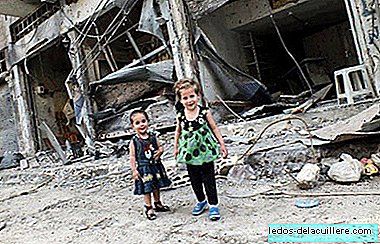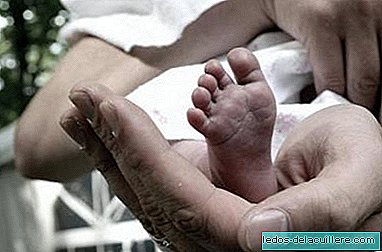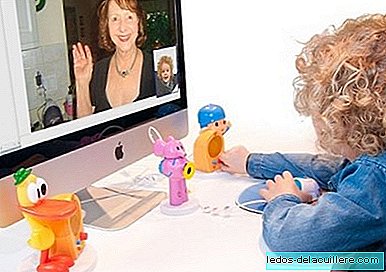
For those of us who work in pediatrics, in health, vaccinating hundreds of children every year, knowing that polio is close to being eradicated is great news. Since 1988 it has gone from an estimated 350,000 cases to 223 reported in 2012, and all thanks to an intensive vaccination program that aims to make the disease disappear.
However, when new outbreaks appear, we feel anger at not having managed to control it in areas where vaccines are most needed, where there is more poverty and marginalization. Now in Syria, of course, the conflict that exists helps little for the population to care for and ensure the health of children, and today WHO has confirmed that there is an outbreak of polio in young children in the northeast of the country, after testing positive in ten of the 22 suspected cases analyzed.
The alarm appeared during the last month when several children had acute flaccid paralysis. This symptom can be caused by polio, but also by other diseases. After accounting for 22 cases of children with paralysis, all of them and the ten children whose results are known were laboratory tested, the ten suffer from the disease. The other twelve cases are pending receipt of the result.
Oliver Rosenbauer, WHO spokesman in Geneva has commented the following:
Of the 22 cases investigated, ten have been confirmed to be polio type one ... Of course this is a contagious disease, with population movements you can travel to other areas, so there is a high risk that it will spread throughout the region .
Many of the affected children are toddlers, under 2 years that, or they had never been vaccinated or had received a single dose of the oral vaccine, when at least three doses are necessary to ensure protection. This is the first polio outbreak in Syria since 1999, when the eradication strategy caused vaccines to reach the area and children to be immunized. What we see, it seems, is that some of the younger children, at least currently, are not getting vaccinated correctly.
From the WHO have also commented that genetically analyze the isolated virus to know exactly what the origin is. The issue is of particular concern because with a population of almost 4,000 refugees fleeing each day from the civil war in Syria, the risk of moving the disease to other territories is evident. Therefore, vaccination campaigns will be initiated both in Syria and in neighboring countries, where there could also be population areas with a low percentage of vaccination.
What is polio?
Many years ago in Spain they stopped seeing cases of poliomyelitis. Some people of the generation that preceded us suffered it, but at present not everyone knows the disease. Polio is a very contagious disease caused by the poliovirus virus, which invades the nervous system and produces paralysis in a matter of hours. It mostly affects children under 5 years.
Contagion occurs through the mouth (respiratory secretions) and oral fecal route, that is, when there is poor hand hygiene. Once the virus enters it may not infect and be asymptomatic (most of the time) or it may enter the central system, pass into the bloodstream and begin to destroy motor nerve cells, causing acute flaccid paralysis. Initial symptoms are fever, fatigue, headache, vomiting, limb pain and stiff neck. One in 200 infected people will suffer irreversible paralysis and between 5% and 10% of these cases die from respiratory muscle paralysis.
Are our children vaccinated?
Polio is virtually eradicated, but not yet. In 2013, some areas of endemic areas have been declared endemic Afghanistan, Nigeria and Pakistan. Comparing this to the situation of more than twenty years ago, success is evident. However, as long as the disease exists, while it is transmitted among children, if children born now are not vaccinated, the risk of expansion is evident.
In Spain our children are vaccinated, since the polio virus is part of the vaccine Hexavalent which is administered at 2, 4 and 6 months of life, and of the Pentavalent It is given at 18 months, so the risk of the disease coming to the country and spreading is very, very low for now.
We hope that the cases do not increase, that the outbreak is controlled, that children in Syria and all poor countries can access vaccines, without restrictions, and that one day the WHO confirms that the disease has been eradicated. It would be great news.












